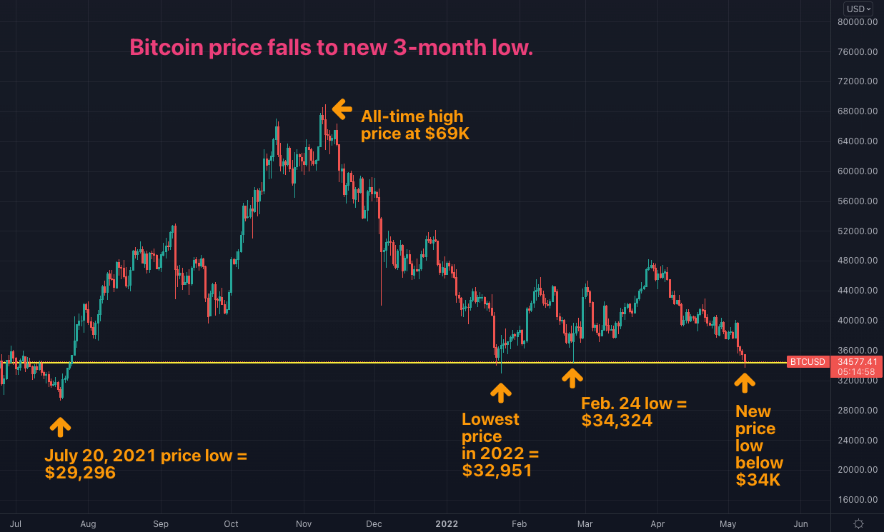
Renson Mwakandana
At least 12 million people from East Africa are currently calculating their losses in billions of dollars as a result of the bitcoin market meltdown and the other linked Ponzi “get-rich-quick” scams that have emerged in the aftermath of the crisis.
Extreme market circumstances have forced several reputable crypto exchanges to close their doors and lay off staff, and there have been allegations of certain crypto-investment schemes dissipating with investors’ money. This makes the future of unconventional assets more uncertain.
The biggest and oldest cryptocurrency in the world, Bitcoin, which was valued at $67,566 in November of last year, has lost at least 70% of its value and is currently trying to maintain its position above the $20,000 threshold.

The whole worldwide market value for all crypto assets has decreased from $2.8 trillion last November to around $890 billion today, throwing some East Africans who own cryptocurrency into financial hardship.
Additionally, there are an increasing number of instances of fraudulent cryptocurrency investment schemes, which, according to the American consumer protection agency Federal Trade Commission, have cost 26,000 people over $1 billion in the US alone since 2021.
Only six months after it first debuted online, several cryptocurrency creators vanished after milking Kenyan potential investors out of at least $8.5 million. Last week, four young Kenyan men were brutally killed over alleged cryptocurrency scamming in Kenya.
Over 5,000 victims of a cryptocurrency pyramid scam in Uganda have filed a petition asking the government to reimburse them for the $2.7 million they lost to a company that was purportedly granted a license by the state.

Prof. Bitange Ndemo, a blockchain specialist from Kenya, said that the decreasing popularity of Ponzi schemes disguised as investments in digital assets began this year as more individuals become aware of their structure and steer clear of them.
Ndemo, a former principal secretary at the ICT Ministry and the chair of the Taskforce on Blockchain and Artificial Intelligence, claimed that a large number of individuals are susceptible to cryptocurrency scams due to ignorance and voracious demand for quick money.
According to Ndemo, “by now, many have learned to be wary of any schemes that promise guaranteed huge returns.”
“Any scamming thrives on lack of knowledge. The more people learn about emerging blockchain technology, the less these pyramid schemes will exist,” according to George Mwakisha, East Africa’s local representative for global cryptocurrency exchange Binance.

You may also like:




